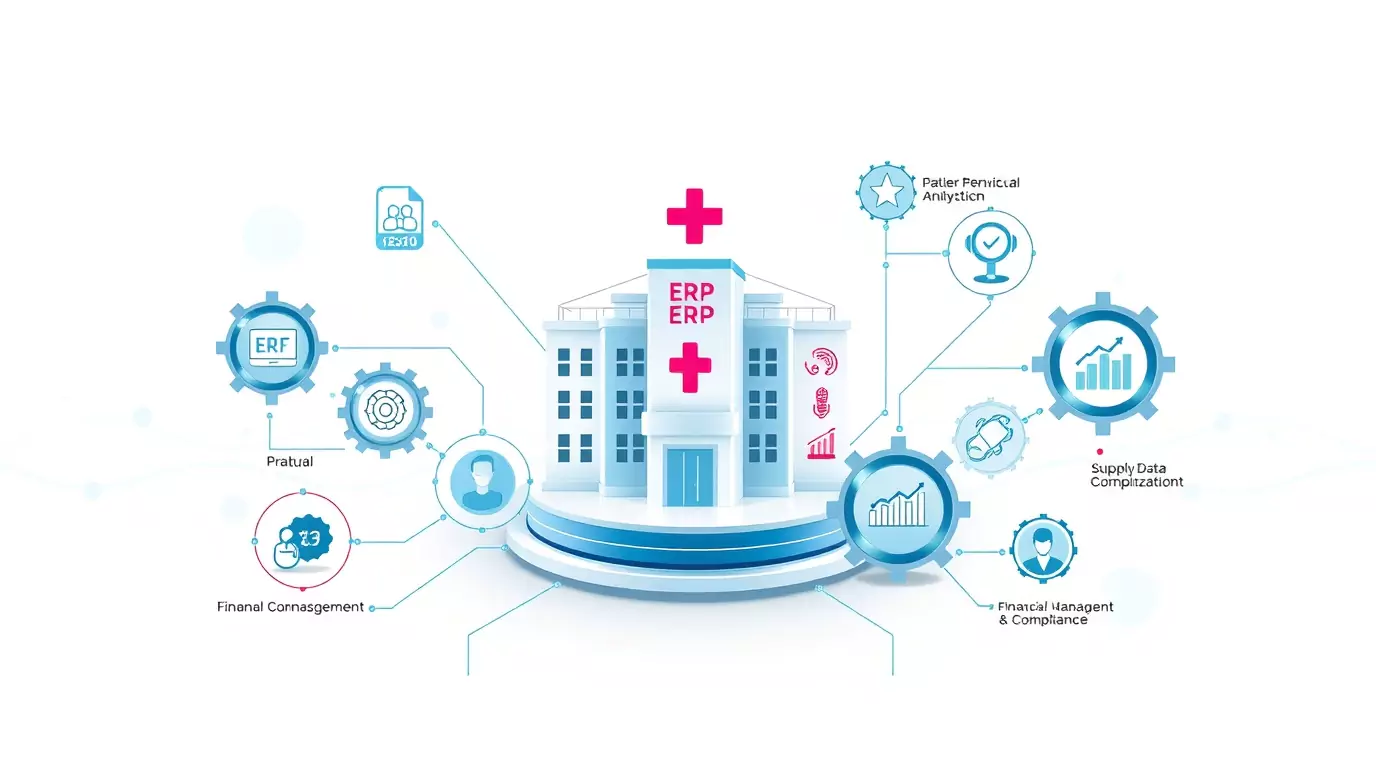Why Healthcare Needs Better Tech: The ERP Breakdown
Healthcare’s a battlefield. Hospitals and clinics are under non-stop pressure to step up patient care, play by the rules, and somehow not break the bank. An ERP system built for healthcare is basically the Swiss Army knife here—pulling together clinical, admin, and money stuff in one place, finally making all the parts talk to each other.
Unique Headaches in Healthcare
Let’s be real, this industry’s got issues most others never worry about:
- Super Sensitive Data
- Patient records are sacred—mess up, and you’ve got HIPAA breathing down your neck.
- So Many Stakeholders
- Doctors, nurses, admins, insurance, and actual patients. It’s like herding cats.
- Complicated Operations
- Scheduling, billing, inventory, labs—each with its own system, and none of them want to cooperate.
- Regulations That Keep Changing
- Just when you get comfy, policy shifts or new rules show up and you’re back to square one.
Why ERP? Seriously, Why Bother?
Here’s the thing: old-school systems keep everyone in their own little silo, which is a disaster for patient care and efficiency. A solid healthcare ERP tears down those walls, making sure departments stop tripping over each other.
- Smooth Patient Flow
- Move folks through the system faster, with fewer screw-ups.
- Clean Inventory Tracking
- No more running out of meds or wasting supplies.
- Faster Billing and Claims
- Speed up the money side and cut down on errors.
- All About the Patient
- With everything connected, people get better care, faster.
Must-Have Features in a Healthcare ERP
- EHR Integration
- If your ERP and EHR don’t sync, you’re flying blind. You want data flowing, not stuck in silos.
- Centralized Scheduling & Admissions
- No more double-booked patients or lost appointments. Everyone sees the same schedule, so the left hand knows what the right hand’s doing.
- Inventory & Pharmacy Management
- Real-time supply tracking means you’re prepared—no stockouts, no wasted meds.
- Automated Billing & Insurance Claims
- Let the system handle insurance and billing. Fewer mistakes, way less paperwork, and money comes in quicker.
- Role-Based Access & Security
- Not every user should see everything. Lock down sensitive info and keep audit trails for when someone asks, “Who did that?”
- Regulatory Compliance Tracking
- Built-in tools for HIPAA, HITECH, and whatever else the government throws your way. Makes audits way less terrifying.
- Clinical Analytics & Reporting
- Want to know how many beds are full, who’s readmitted, or which treatments are working? The right ERP gives you those numbers instantly.
Top Healthcare ERP Systems to Check Out
- SAP for Healthcare
- Big, powerful, and ties together just about every workflow you’ve got.
- Infor CloudSuite Healthcare
- Built for healthcare from the ground up, super flexible, and scales as you grow.
- Oracle Health (formerly Cerner)
- Massive player, great for big hospital networks with lots of moving parts.
- Microsoft Dynamics 365 Healthcare Accelerator
- Fast to deploy, perfect for smaller clinics needing something that just works out of the box.
Key Things to Think About Before Rolling Out ERP
- Data Migration
- Old systems are messy. You need to move sensitive info over safely, and test everything before you go live.
- Training Staff
- People hate change. Make sure your crew knows the new system or you’ll have mayhem on your hands.
- Custom Modules
- No two hospitals are the same. You’ll almost always need tweaks—custom reports, unique workflows, whatever fits.
- Lab & Device Integration
- If your ERP can’t talk to labs and devices, you’re missing half the picture. Seamless integration is key for real-time updates.
Bottom Line: ERPs Aren’t Just for the Back Office Anymore
A healthcare ERP isn’t just some IT project you can ignore. It’s a game-changer for actual patient care and how smoothly things run day-to-day.
- Faster, Smarter Decisions
- Real-time info means you don’t have to wait for someone to email a spreadsheet.
- Departments Actually Collaborate
- Everyone’s on the same page, so work doesn’t get duplicated and patients don’t fall through the cracks.
- Stay Compliant Without Losing Your Mind
- Built-in compliance tools keep you out of hot water with regulators.
Honestly, if your hospital or clinic hasn’t looked at a real healthcare ERP, you’re basically doing things the hard way. Get the right system, and you’ll see better service, happier staff, and way fewer headaches—promise.
